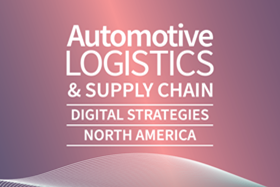Red Sofa Interview | Toyota’s David Herb on the future of AI in supply and demand planning
At the inaugural ALSC Digital Strategies North America, David Herb, Business Insights and Strategy manager, Demand and Supply Management, Toyota North America took to the Red Sofa to talk about the benefits and opportunities of AI in supply and demand forecasting.
Related video
-

Red Sofa | Hugo Villicaña, Brose on Mexico-US cross-border logistics
-

Red Sofa Interview | Nissan’s Gerardo de la Torre on cyber security and digital action plans for automotive supply chains
-

Red Sofa Interview | Logen Lytle, Honda on organisational change to enable supply chain digitalisation
-

Bosch’s Chandan Trehan on the need for open, digital, agile mindsets
-

Red Sofa Interview | Vinturas’ Ronald Kleijwegt on interoperability and private blockchain in automotive logistics
Herb spoke to Megan Kelly, assistant editor, Automotive Logistics about the benefits that artificial intelligence is bringing to automotive logistics and supply chain.
“What we try to do is connect the demand sensing side of the house with supply and inventory, and try to better our planning processes, whether that be through better demand sensing, demand shaping, forecasting, planning, and then how do we actually equip that and execute on that demand with the inventory planning and allocation,” he said.

The use of AI could help “drastically” scale up this demand sensing further in the future too, he said. “We are heavy proponents of machine learning as well as optimisation and just trying to better understand the chaos of the data,” Herb said. “So traditional models that you set and forget are a little bit outdated at this point, and the real benefit of ML and AI is that it is continually picking up those trends, especially recent trends, but also balancing it with what has historically happened, and being able to shift weights and find new ways to creatively use this data.”





